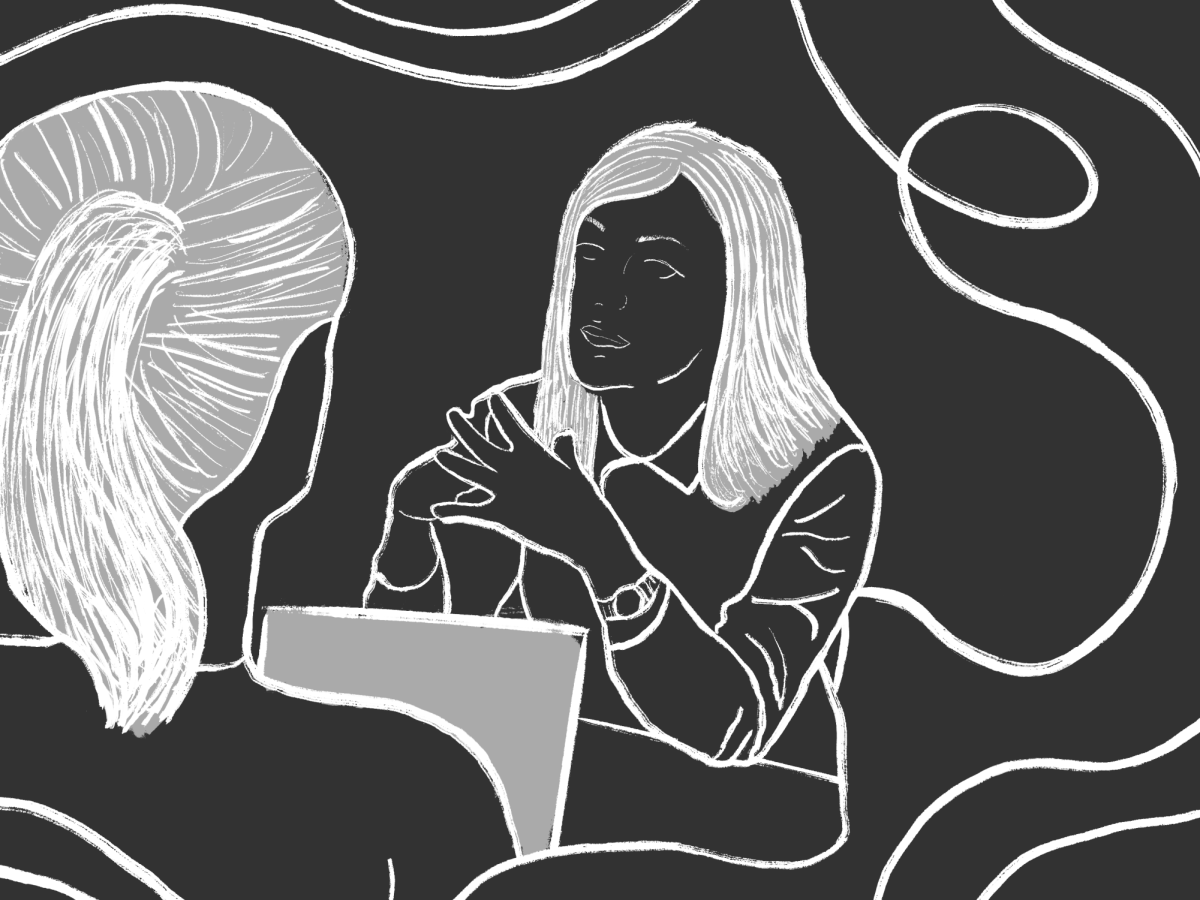“I’ve always been the kind of person who writes in order to understand the world around me,” said Dr. Sarah Domet with a smile. Domet is the award-winning author of her debut novel “The Guineveres,” the author of the upcoming novel “Everything Lost Returns” and an Assistant Professor in UNCW’s Creative Writing program.
Domet’s debut novel, “The Guineveres,” follows the story of four orphaned girls—s, all named Guinevere, living in a convent together at the pivotal coming-of-age times of their lives. “The Guineveres” was published by Flatiron Books in 2016 to rave reviews from many publications including the New York Times Book Review, Bustle and the Toronto Star.
Like the Guineveres in her novel, Domet attended Catholic school as a child and much of what she experienced helped shape the atmosphere of “The Guineveres.” She shared with me several memories from her years in school that translated directly into the book: one of the nuns had a parrot named Pretty and another used her old worn-out shoes as flowerpots.
“It’s funny, you know, because I’m so far removed from those experiences in some ways and it’s been so many years, but something can just bring me right back there.”
Domet’s Catholic school experience also made her reflect on identity in new and interesting ways. Identity exploration is a significant theme throughout her debut novel. She explained, “Part of me wanted to write a book that just explored coming of age in this very insular environment — where everybody’s looking at you, everybody’s placing judgments on you, and how can you really begin to distinguish yourself as a person in that kind of environment?”
When I asked Domet about the ways in which she uses writing to explore different characters and the relationship dynamics between them, I felt her excitement grow. She teaches her students that it’s not the characters themselves, but the interactions between them characters that create artful narratives. “That’s what’s going to drive and propel your story forward — the particular kind of trouble you’re going to allow your character to get into or be faced with,” she said.
“I think every fiction writer is just fascinated with human relationships and human psychology,” Domet said. “I’m particularly curious about what kind of patterns we get into with relationships and with other people, and what does that say about who we are, and how can we break these patterns?”
Domet’s newest novel “Everything Lost Returns,” set to release in Feb. 2026 from Flatiron Books, is a testament to her never-ending curiosity about the motivations and patterns of human behavior. She said, “It’s about a character who has essentially been, you know, a good girl all her life, done everything that she was supposed to do, and then what happens when you get to a breaking point? What things are you willing to do in order to discover who you really are?”
“Everything Lost Returns” primarily follows the stories of two women, Opal Doucet in 1910 and Nona Dixon in 1986, as the troubling history of the Earthshine soap factory is uncovered over the course of a class action lawsuit. 1910 and 1986 also mark the last two times that Halley’s Comet was visible from earth.
I can tell that Domet cares intensely about her characters. Domet spent a lot of time trying to understand her character’s motivations, in both a literal and figurative sense. The character Opal Doucet is literally on the run in the book, but Domet dug deeper to find what was truly propelling the character forward. “And it was interesting because as a writer, I kept saying ‘What are you really hiding?’ It was like she was hiding from me, too,” she said of Opal.
The cover for “Everything Lost Returns” was designed by Sara Wood. Domet feels that the cover reflects her story beautifully very well: “I thought it was so interesting how she was pulling these images from real artifacts from the era in which the novel was set as a way to be more evocative of that time period like the tone of the book.” The cover features a drawing of Halley’s Comet, soap bubbles and the bottom half of a woman in a yellow dress standing on the comet’s streamers. The soap bubbles came from a birthday card with a frog blowing bubbles, and the woman in the yellow dress came from a slightly sexist advertisement for pantyhose. “[The book is] like a collage of all these women’s experiences, and so for that reason, I love that the cover is a kind of collage as well,” Domet said.
Like “The Guineveres” explores action of identity, “Everything Lost Returns” also hinges on a central theme. Domet said, “I think the question driving the novel was like how we’ve come so far in terms of feminism, but how far have we really come?”
This is Domet’s third year as a faculty member in UNCW’s Creative Writing Department. In addition to teaching graduate students, she is currently serving as the coordinator of the Creative Writing Department’s Master of Fine Arts program.
As both a writer and educator, Domet’s work is a testament to the power of curiosity, empathy and imagination. “And I think that’s something we have to remind ourselves and our students to do — to remember that creation is ultimately a joyful act,” said Domet.









